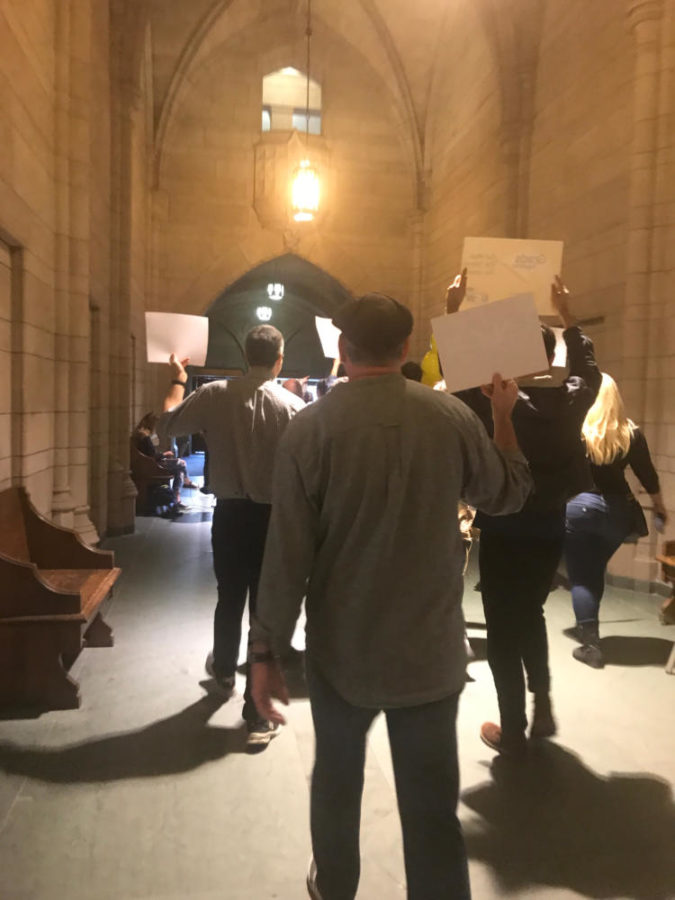The push to unionize grad students at the University, while in the works since the beginning of 2016, has heated up significantly in the past few months.
When Pitt graduate students arrived in the common room of the Cathedral of Learning on Tuesday to deliver a list of demands, the police presence seemed more suited to a riot than anything else.
With student organizers continuing to accumulate the signatures needed to hold a vote on unionization, Pitt administrators — who previously held a neutral position on the process — have ended their silence to come out aggressively against the prospect of unionization.
In a July 27 letter, Provost Patricia Beeson characterized the unionization process as “complex and carr[ying] long-range implications for [grad students] and the University.” Yet in practically the same breath, Beeson seemed to condemn “the potentially adversarial approach of collective bargaining.”
Administrators are right in believing that the relationship between the University and its graduate employees is a complicated one — and one which graduate students themselves and their experiences are especially well-positioned to be of value. But the University’s decision to take a side on the issue seems to ignore this complexity.
Beeson’s letter makes vague reference to the United Steelworkers — the outside union that would represent grad students — as “a union unfamiliar with our academic values, culture, and mission.” The University makes explicit comments about the USW on its website, including that the USW currently represent graduate students at no institutions of higher learning in the country. It’s undeniable that Pitt has a point here and that graduate students have a legitimate concern to face — but the point is lost in the administration’s lack of nuance in their larger approach.
While we write for the entire University community, the editorial board of The Pitt News is made up entirely of undergraduate students at Pitt, and so we can’t claim to understand the lived experiences of graduate students here. For this reason, we can’t say we know enough to pass judgment about how unionization would affect the day-to-day lives of graduates.
However, the same appears to be true for University administrators. Speaking for the University, Beeson wrote that she had “not learned of any single, widespread concern driving students to unionization.” Yet, Pitt graduate students have been repeatedly explicit about the issues driving them to form a union. In an interview with The Pitt News in June, graduate student union organizer Abby Cartus explained that students’ concerns “all branch from a lack of power or say.”
By taking a side, Pitt should be able to back up their position. When asked specifically about how Pitt concluded that a union would hurt faculty-grad student relationships, Pitt spokesperson Anthony Moore avoided the question. The University needs to stop making arguments they can’t back up and listen instead.
There’s a dispute over whether or not graduate students count as University employees or not. According to Moore and the University, they don’t; according to the National Labor Relations Board, they do. As for our opinion, take a look at what issue we put this in.
Editor’s note: The editorial appeared in our Employment Guide special edition.


